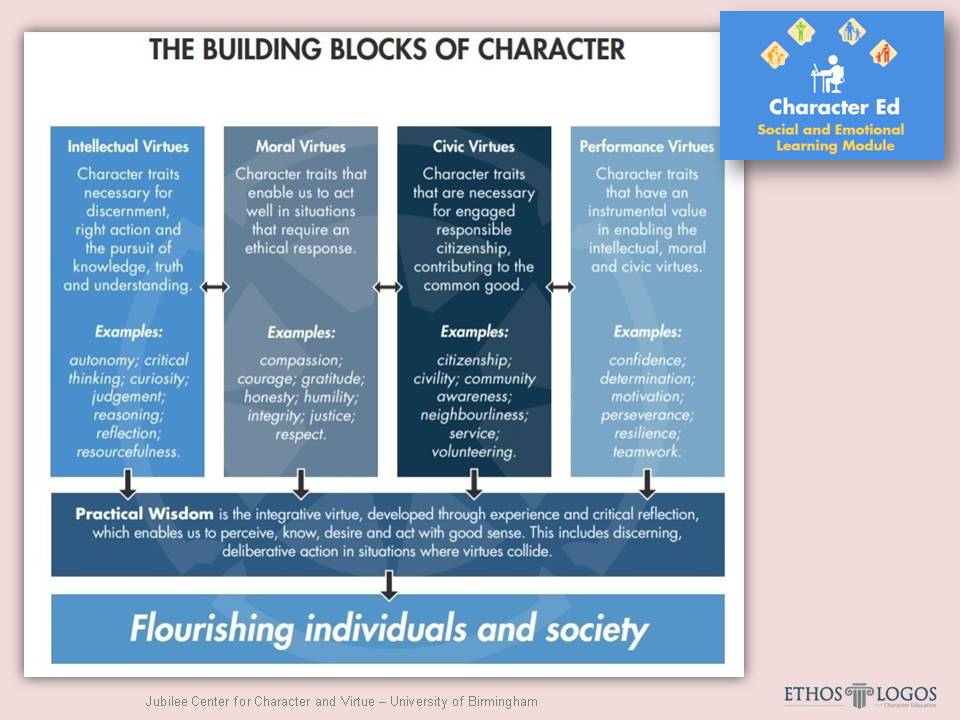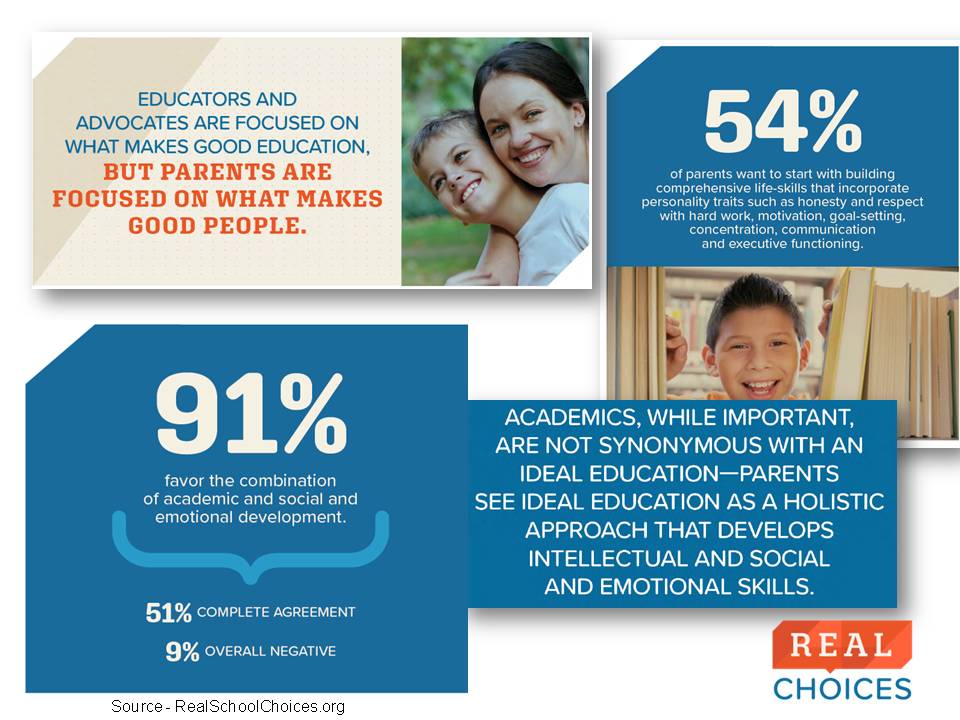Just like strong academic skills taught earlier in elementary translate into better academic outcomes in middle school and beyond, a concerted effort towards character education early is an investment that returns in later life benefits. The good news is that greater malleability of character skills is found over longer stretches of the life cycle than for cognitive skills. This occurs in part because new aspects of character emerge with maturity and can be influenced. (Hickman 2013)

Investment in character skills in the early years has a higher economic return than investment in the later years because it builds the base of understanding and a framework from which to grow. If the early years have been compromised, it is more effective in the adolescent years to focus on developing character skills rather than on cognitive skills. (Cunha, Heckman, and Schennach (2010) report that 16% of the variation in educational attainment is explained by adolescent cognitive skills, 12% is due to adolescent socio-emotional traits (character skills), and 15% is due to measured parental investments.
No matter what age we start a Social Emotional Learning program, the benefits later in life are impactful. Aristotle emphasized that virtues are developed with extended practice, effort, and guidance from parents, teachers, and mentors until the child is able to self-maintain virtue.
Teaching Parents How To Partner with the School
Parents are the first and primary moral educators, the alignment between school and home is the goal of an effective academic and character development program. Few parents need to be convinced that children need to learn and see what good character is. Schools that reach out to families and include them in character-building efforts have greater buy-in and parent satisfaction.
They take advantage of every opportunity to communicate with families about goals and activities regarding character education. Parent representation on the character education team builds greater trust between home and school.

Virtual Parent Classes - Home and School Alignment
Research (Dauber, Epstein 1989) points to the important role the schools and teachers play in engaging the parents at home as part of their students learning outcomes.
The study of 2,300 parents from inner-city schools found that parents are open and receptive to wanting the schools and teachers to advise them about how to help their own children at home at each grade level. Parents believe that the schools should give specific and detailed information on academic and learning goals their children are expected to learn each year.
Most important for policy and practice, parents' level of involvement is directly linked to the specific practices of the school that encourage involvement at school and guide parents in how to help at home. The data are clear that the schools' practices to inform and to involve parents are more important than parent education, family size, marital status, and even grade level in determining whether inner-city parents stay involved with their children's education through the middle grades.
Part of the ELCP involves bringing the parents along the journey of character education and equipping them with some tools that can align the work being done at the school around character development with their efforts at home. The ELCP program has crafted courses that have proven to be effective in long-term student outcomes. Inside the Medici Digital Curriculum program are built-out courses that can be customized to an individual community that includes:
First and Second Grade Parent Classes
A seven-session course on behavior management using the Druikers/Glasser techniques employed by the school.
Second and Third Grade Parents
Are offered a four-session course to support their children’s academic achievement with a heavy focus on reading instruction techniques used by the school with a focus on phonetic understanding and frequency of reading.
Fifth and Sixth Grade Parents
Are offered a five-session course to include: issues facing students surrounding social media and self-esteem, substance abuse, academic goals, and study skills needed for middle and high school success.


For a great analysis of what parents want in a school. RealChoices.org

